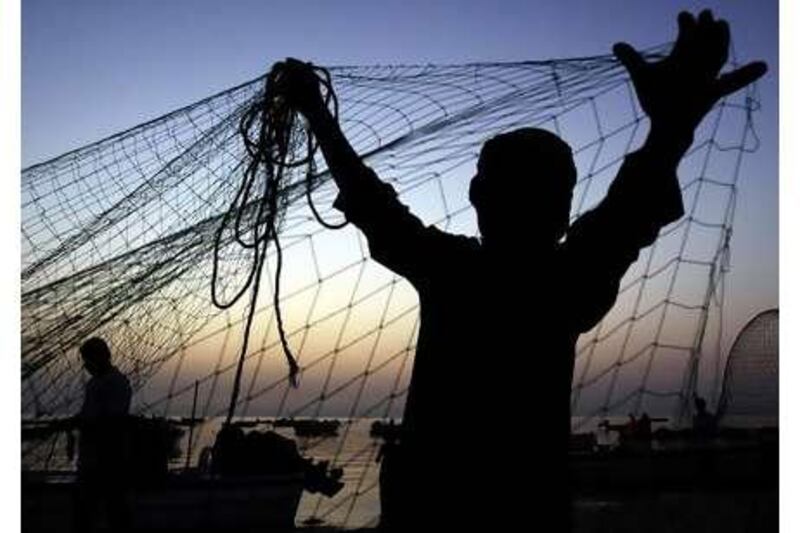Relations between Qatar and Bahrain have become increasingly strained since the arrests of more than 100 fishermen accused of straying into Qatari waters, and has threatened to reignite the two countries' past territorial disputes.
One fisherman was shot and seriously injured by the Qatari Coast and Borders Security forces in May and dozens remain in prison in Qatar as the fall-out from the crisis appears to be spreading. Plans for the world's longest bridge to link the two Gulf countries are believed to have stalled, Bahrain has blocked the Doha-based Al Jazeera television network from broadcasting on the island state and this week Qatar's energy minister said talks over potential liquefied natural gas shipments had stalled.
Last Thursday, Qatar released 46 Bahraini and South Asian fishermen and allowed them to return home, but since then eight more have been detained, including two fishermen who were on their way to collect their freed colleagues. On Tuesday, a Bahraini parliamentary delegation that visited Qatar and met the head of the Shura council said they had received assurances that all the sailors would be released soon.
Jalal Fairooz, an MP for the Al Wefaq bloc, said after taking part in the meeting: "There was a great understanding for the issue of the sailors and the need to resolve this matter in a way that respects the dignity of all and quickly." While the fishermen have been held in jail it has emerged that a planned US$4.5 billion (Dh16.5bn) bridge to join the two states is not progressing as expected. This week, the company behind the transport link, Vinci, said it had not agreed to a final contract for the project, which was meant to be a sign of improved relations between Manama and Doha.
"We had hoped to start the project in 2010," Vanessa Lattes, a Vinci spokeswoman, told Bloomberg. "The studies are finished and we are now working on all the technical and budgetary aspects." The two countries said in November that work on the 40km maritime bridge would start in the first quarter of 2010 and finish in 2015. It would link Bahrain to Qatar and a planned rail network across the six-nation Gulf Co-operation Council.
John Sfakianakis, the chief economist at the Riyadh-based Banque Saudi Fransi, said Qatar now appears to be stalling on the bridge project. Bahrain, which is the smallest Gulf oil producer and is running out of reserves, has a "greater need" to open up to the rest of the Gulf than Qatar, owner of the world's third-largest gas reserves, Mr Sfakianakis said. "The obstacles are more emanating from Qatar than Bahrain."
Bahrain denied the plan to build the bridge had been suspended. Work on the project is progressing as scheduled, Bahrain News Agency said earlier this month. The disparity between the two Gulf states' energy resources were highlighted last week when Mohammed Saleh al Sada, Qatar's minister of state for energy and industry affairs, said at an energy conference in Calgary that talks over potential liquefied natural gas shipments from Qatar to Bahrain had stalled, Dow Jones reported.
The arrests stem from a decades-old territorial dispute which centres on Bahrain's control of the Hewar Islands just off western Qatar. In 2001 the International Court of Justice awarded sovereignty of the islands to Bahrain. Christian Koch, the director of international studies at the Gulf Research Center in Dubai, said while Qatar accepted this ruling, there is still confusion over the exact location of the maritime border, which has not been properly defined. "The fishermen are unsure over what areas they are allowed to go into," he said. Mr Koch said he believed that the problems would be resolved and if they escalate, other GCC countries would step in to mediate.
Mohammed al Arees, who owns three fishing vessels, one of which was detained for more then a month in Qatar, agreed that there was confusion about the border. He said the awarding of the most fish-rich areas to Qatar following the settlement in 2001 and the damage done by massive reclamation projects on the Bahraini side had added to the fishermen's problems. "Since the arrests we had not gone fishing and the financial damages, be it from holding the staff, the equipment and the costs incurred as a result of following the cases in Qatar are just beyond our financial means," he said, adding that he estimates to have lost 10,000 Bahraini Dinars (Dh97,000) because of the arrests.
Last month the Bahraini cabinet said that the Qataris were holding 106 fishermen from Bahrain, all for allegedly entering its territorial waters illegally to fish. Independent sources that are closely following the cases estimate that 59 remained in Qatari custody. foreign.desk@thenational.ae * With additional reporting from Bloomberg





